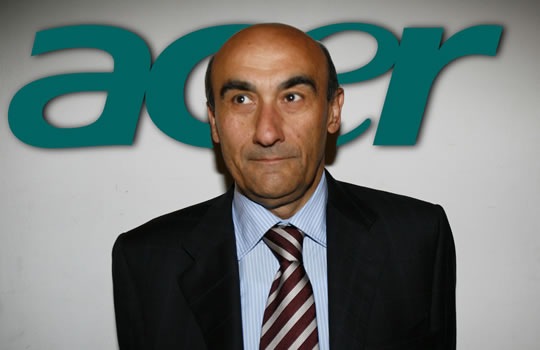Good morning, and welcome to our Tuesday edition of People Suing Each Other. In the far corner, we have the number four PC maker in the world, Acer, based out of Taiwan; and in the other corner we have Acer former CEO Gianfranco Lanci, based out of Italy, who resigned in February of 2011 after being with the company since 2007.
The beef? Well, according to the Financial Times, Mr. Lanci signed a non-compete contract with Acer that was meant to last a full year after his resignation. However, Lanci instead hopped on the Lenovo train in September (about seven months after leaving Acer) as a consultant. Shortly after, he was appointed the head of Lenovo’s Europe, Middle East and Africa businesses last month.
Between Lanci’s rise to the top at Acer and his transition to Lenovo, Acer was the number two PC maker in the world. Now? That spot would be filled with Lenovo, as Acer has dropped to number four.
Before leaving Acer, Lanci had a clear vision for the company that he believes would’ve worked. The focus should have been on building up engineering at the firm by acquiring talent in both the hardware and software departments. At the same time, he saw the transition to mobile as an imminent one and knew the firm would have to build on that level. That inevitably means that Acer would’ve had to not only push the brand out to other parts of the world, but it would, in fact, have to source talent from those other parts too.
To Acer investors, this sounded like a “de-Taiwanization” of the company, reports AllThingsD. But Lanci contends that if his vision had come to fruition over at Acer, the company would’ve grown to be a $30 billion company, bringing in over a third of its sales from smartphones and tablets by 2015.
Instead Acer spent 2010 missing on its quarterly earnings, and paying $150 million for unsold inventory in Europe. Now the company is saying “We believe Mr. Lanci has clearly breached the terms of the non-compete agreement he entered into willingly… We believe we have a very robust case.”
